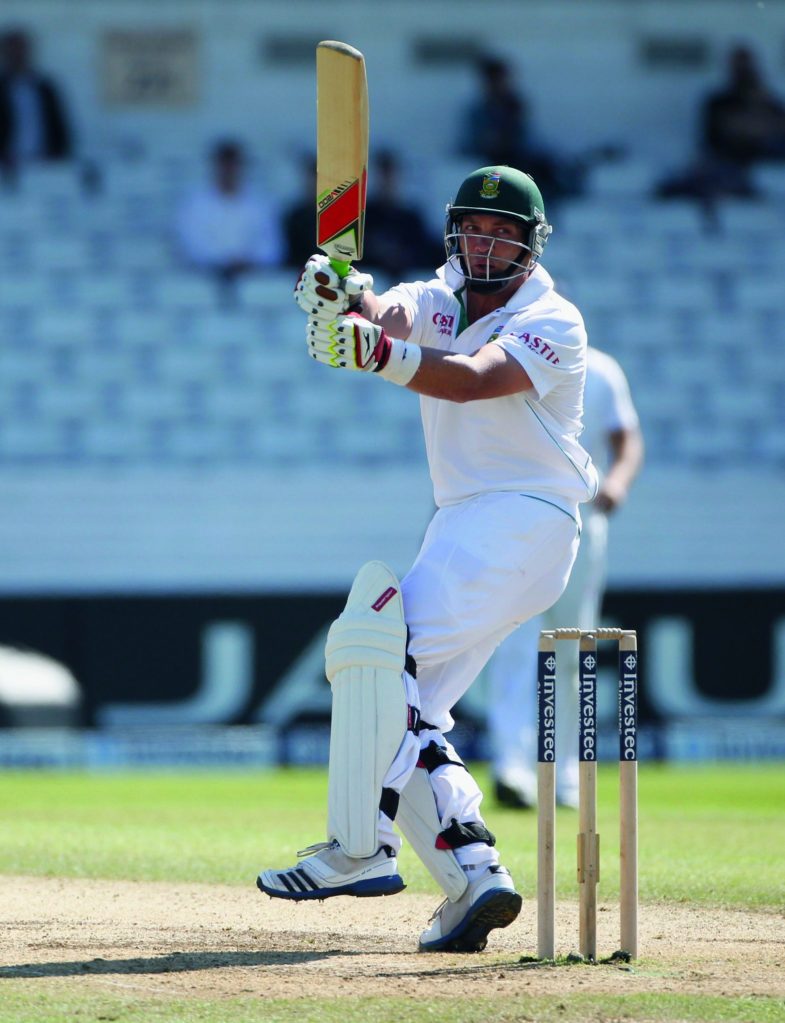It was not that long ago when South Africa’s most celebrated cricketer, Jacques Kallis, could not be persuaded to do much more than show off his superior ability with bat and ball. Always a reluctant leader, he did not want that responsibility. Kallis typified the South African cricketer: self-absorbed with his own excellence above all.
If someone had said then that Kallis would make a goon of himself in front of his teammates, at a fancy dress function, people would not believe it—on South Africa’s tour to England, that is exactly what Kallis did. For an improvisation theater session—the brainchild of South Africa’s performance director, Paddy Upton—Kallis chose to dress up as a hotdog. He was the star act of the night. The team man had emerged.
The progress of Kallis is a small, but telling, example of the progress South African cricketers have made in their bid to dominate world cricket. The team has usually bubbled under when it comes to taking the top spot. True, it has maintained a steady hold of the number two position in test cricket and is usually a World Cup favorite, which bows out when it gets tough. This year the team believed it was time to scale the summit and stay there.
South Africa’s change in form can be traced back to the series win in England in 2008. Although the team had been successful away from home before, that victory was a major breakthrough because it was the first since readmission in 1991. Furthermore, it was achieved against an in-form England side on territory considered tough to conquer.
Then the side went to conquer where others had failed for 15 years—Australia. Between 1993, when Australia lost to West Indies, until 2009, the national team had not been defeated at home. For South Africa, to be first team to win in Australia for 15 years was powerful.
Those two tours formed the foundation of six years in which South Africa did not lose away from home. Even though no other team had a record like this, South Africa remained second.
The truth is, South Africa lacked a knockout punch. A jab would have been enough if the team had won at home more often or whitewashed a team away. Against this backdrop South Africa took on England this year in the hope of something special.
Preparations were made with that in mind. Instead of a training camp at one of the usual venues in South Africa, the squad went to Switzerland for an adventure escape with explorer Mike Horn. Famed for circumnavigating the globe without any motorized transport, Horn is a tough guy in every sense of the word.
He made the squad ride up on bicycles and walk for kilometers with heavy backpacks, all on the same day. There was no cricket at all. It was only about being mentally and physically tough.
Wicketkeeper Mark Boucher, who was forced to retire after the first day on tour when he suffered a lacerated eyeball, was one of the outstanding athletes on this grueling journey. He rallied the troops when times were tough. Boucher transformed into a father figure and some of that may have rubbed off on Kallis. When Boucher was injured, Kallis stayed at the hospital for most of the night after his surgery. Kallis also stayed back at the hotel with Boucher the next day and did not go to the ground for a practice match. The next day, Kallis was at captain Graeme Smith’s side when he read out Boucher’s statement.
Kallis scored a century in the first Test, which South Africa won, and dedicated it to Boucher. In so doing, he also improved a record that had been magnificent everywhere but in England. He helped AB de Villiers, who had to take over Boucher’s wicket-keeping role, from his position in the slips and provided Graeme Smith with support due to his experience.
After seventeen years as an international cricketer, Kallis has blossomed late, in his own way. On this tour, Kallis contributed as a person as well as a cricketer. South Africa needed these contributions to go from good to great and the conduct of Kallis is a sign that the team is getting there.
